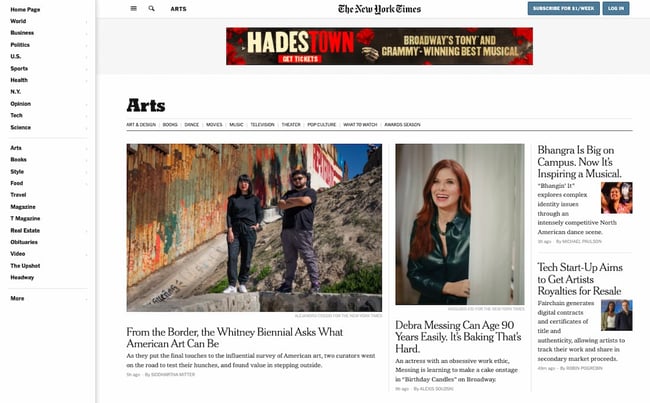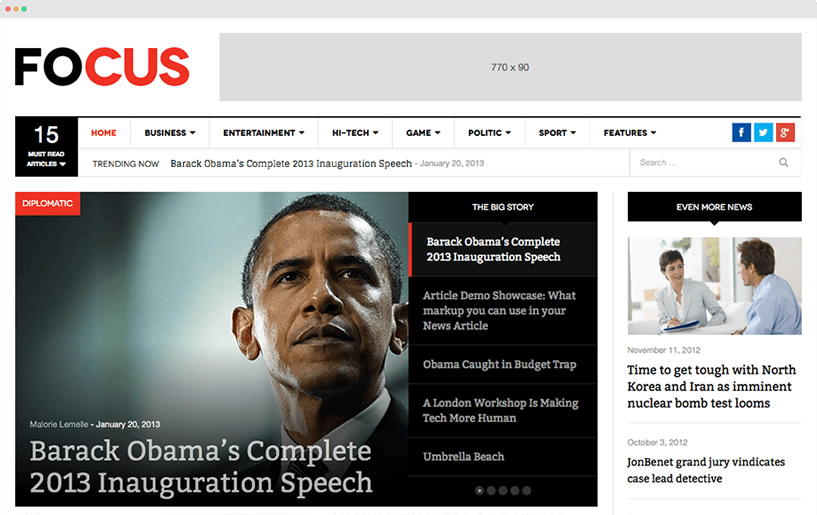The Buzz on News Websites
Table of ContentsWhat Does News Websites Do?Indicators on News Websites You Should KnowGet This Report on News WebsitesThe Facts About News Websites UncoveredNot known Factual Statements About News Websites
It was down in the UK and Brazil but up some other nations, such as Greece, Bulgaria, and Poland (News Websites). This year, for the very first time, we inquired about the various manner ins which individuals prevent the information and located that around half of avoiders (53%) were trying to do so in a broad-brush or periodic means for instance, by switching off the radio when the information came on, or by scrolling past the information in social media sitesYou said that you attempt to actively stay clear of news.

I'm possibly choosing to find out more light-hearted stories than I used to currently. M, 51, UK Switching my back on news is the only way I feel I can cope often. I have to knowingly make the initiative to avert for my very own mental health.
The 45-Second Trick For News Websites
Discerning evasion of Ukraine information was highest possible in a lot of the nations closest to the conflict, strengthening findings from our added study in 2015, right after the battle had begun. Our information may not recommend a lack of rate of interest in Ukraine from close-by countries yet rather a desire to manage time or safeguard mental wellness from the very real scaries of war.
Contrasting Finland with a politically polarised nation such as the United States (see next graph) that is much less impacted by the war, we find a really different pattern of topic evasion. In the United States, we find that customers are more probable to avoid subjects such as national politics and social justice, where discussions over problems such as sex, sexuality, and race have come to be highly politicised.
American politics are quite poisonous nowadays. I find in some cases that I have to disconnect from stories that simply make me angry. F, 61, United States For some people, bitter and disruptive political arguments are a factor to turn off information altogether, but also for some political partisans, evasion is often about obstructing out viewpoints you do not want to hear.

News Websites - Truths
Some are wanting to make news a lot more obtainable for hard-to-reach groups, widening the news program, commissioning more motivating or favorable information, or accepting positive or services journalism that provide people a sense of hope or individual company. In our study this year, we asked participants about their interest in these various techniques.
This clarifies why stories like Ukraine or nationwide politics execute well with information regulars but can at the exact same time turn much click this less interested customers away (News Websites). Discerning avoiders are much less curious about all kinds of news than non-avoiders but in relative terms they do appear to be a lot more thinking about positive or solutions-based news

3 Simple Techniques For News Websites
2023). This may hold true in the moment, however in time it appears to be leaving numerous individuals vacant and less pleased, which might be weakening our link with and count on the information. Throughout markets, total trust fund in information (40%) and count on in the sources people use themselves (46%) are down by an additionally 2 portion factors this year.
With the rear-view mirror, the COVID-19 count on bump is clearly visible in the complying with chart, though the instructions of travel afterwards has been this link blended. In some cases (e.g. Finland), the count on increase has actually been kept, while in others the upturn looks even more like a spot in a story of continued long-lasting decline.
A few of the greatest reported levels of media objection are located in countries with highest levels of suspect, such as Greece, the Philippines, the United States, France, and the United Kingdom. The least expensive levels of media objection are usually in those with higher levels of depend on, such as Finland, Norway, Denmark, and Japan.
News Websites Fundamentals Explained
This year we asked respondents concerning their preferences for text, sound and video clip when consuming information online. Typically, we find that the bulk still choose to check out the news (57%), as opposed to watch (30%) or pay attention to it (13%), yet more youthful people (under-35s) are most likely to listen (17%) than older groups.
Behind the averages we discover significant and unusual country differences. In markets with a his response solid reading custom, such as Finland and the United Kingdom, around 8 in ten still favor to read online information, but in India and Thailand, around 4 in 10 (40%) state they prefer to view information online, and in the Philippines that percentage is over half (52%).